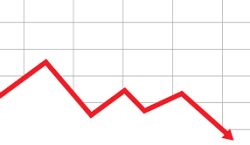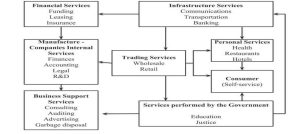

ZIMBABWE’S pursuit of an upper middle-income economy by 2030 can be easily achieved by improving its service economy, experts say.
This comes as studies have shown that the world’s “most industrialised economies are powered by services” and the African Development Bank’s 2020 African Economic Outlook report said continental service sectors contributed 53 percent of Africa’s aggregated GDP, with industry contributing 36 percent.
This not only resonates with the findings from the inaugural ZB Financial Holdings (ZBFHL)-backed state of the service economy survey to be launched on December 13, but visualcapitalist.com says China, the United States, Japan and Germany’s GDP’s benefitted by anything between 54 percent to 78 percent last year.
 The same trend holds for the 2023 Fortune Global 500 companies, a global ranking of corporations that have established themselves as leaders in their industries by achieving incredible financial success. Simply put, a service economy is an economy where the primary economic activity is providing services rather than producing goods.
The same trend holds for the 2023 Fortune Global 500 companies, a global ranking of corporations that have established themselves as leaders in their industries by achieving incredible financial success. Simply put, a service economy is an economy where the primary economic activity is providing services rather than producing goods.
With retail and e-commerce giant Walmart taking the lead on the list for the tenth year in a row with a whooping revenue of US$611.3 billion, it comes as no surprise that the majority of the 2023 Fortune Global 500 companies are service-driven.
Kenyan-based Desiderio Consultants also says that even though the service sector’s contribution is largely underestimated as it does not capture the informal sector, whose presence is particularly widespread in some of its sub-sectors such as the road transport services, which are among the least understood sectors of African informal economy because little research has been carried out to date.
It is this opportunity to position Zimbabwe as a leading service economy in the world that inspired ZBFHL to partner with Topline Research Solutions, Tatu Advertising, and The Financial Gazette and invest in providing corporates, policymakers, investors, customers, scholars, and communities with transformative insights on the state of the service economy in Zimbabwe.
The service sector includes recreation, tourism, transport, ICT, education, and financial and insurance services, and constitutes the largest economic sector by value for most African economies.
Also, as the global economy becomes one big market due to globalisation, increased competition has put the service-product continuum in the spotlight, challenging product companies to invest more in their service offerings for market attractiveness. This makes service a universal language for sustainable corporate growth, national prosperity, and global development.
Sorry. No data so far.

